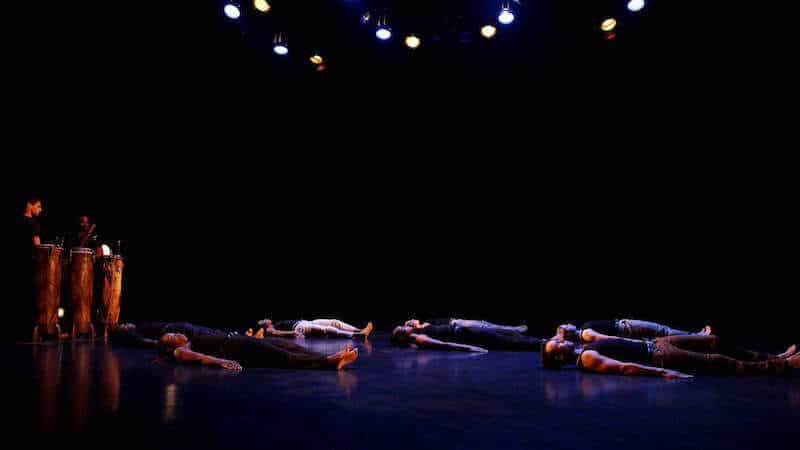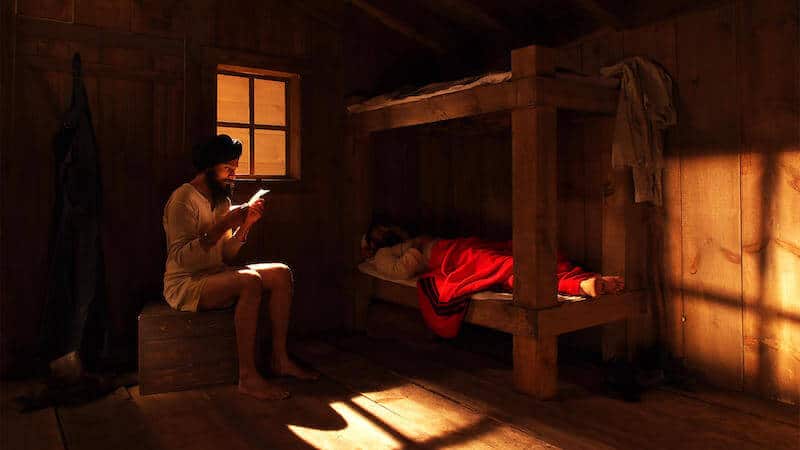
Mozongi of Zab Maboungou with Elli Miller-Maboungou, Adama Daou, Aboubacar Mané, Gabriella Parson, Karla Etienne, Mithra Rabel, Jennifer Morse, Luis Cabanzo, Raphaëlle Perreault, Le Gesù, November 2015. Photo: Kevin Calixte
English to French Translation by Scott Daley. Thank you to Rumi Translations.
Primary Colours / Couleurs Primaries
Songhees Wellness Centre,
on traditional Lekwungen territories, near Victoria, British Columbia
September 23-26, 2017
Directors: Chris Creighton-Kelly and France Trépanier
Share Article
When I received the invitation to participate in the great gathering that was Primary Colours this autumn in the city of Victoria in British Columbia, my feeling was above all that of remembrance. France Trépanier, Chris Creighton-Kelly, myself, and several others had already been there, in a way. We had experienced these gatherings, driven by the desire to see them turn into a pan-Canadian solidarity that could counter the effects of racial and cultural exclusion in our institutions and our communities. That was more than two decades ago… So what could we expect today?
The posture wasn’t one of scepticism, strictly speaking, but rather one of attention paid to time and to the resolution of the conflicts that assail us and divide us – us, human beings. To the time needed to learn not to know each other, but to “recognize” each other and to act together. Primary Colours wanted to give it a try and thus reactivate our ability to change.
And change was the issue. Not a hope for change, but change brought about since the actions of the past, that which could make this gathering a turning point, a sort of catalyst for the active presences on the territory and in Canadian society. That was the case, for the most part, thanks to our hosts from the traditional territory of the Songhees and Esquimalt Nations and the people of the Lekwungen Territory, in this city that today calls itself Victoria, but also thanks to the Indigenous participants who came from other regions, who were able to give this gathering all the meaning that we could expect: grounded and empowered, geared to the welcoming of another model of society.
For that, it had to be accepted freely and de facto by the elders as well as by the younger generations, who – another very positive aspect of this gathering – generously demonstrated on this occasion their involvement and their willingness to open themselves up to invent their own future.
The "continental" dimension of this event thus appeared to me, not to say that it was joyously embodied, and in a concerted manner, and with it, the “fluid” idea of a circulation of art and cultures.
Because that's where we really came to an agreement: to reiterate and commit our strengths, whether it's on the intellectual, aesthetic, activist and social levels, or on the levels of artistic practice, its transmission, and its distribution, beyond the usual definitions inherited from hegemonic practices which, for quite a long time already, have been granted the privilege of occupying space and producing concepts. This large-scale gathering, this Great Welcome, this multiplied dialogue, this collective imagining of decolonization, this decentralized diversity was not intended to reaffirm principles, even though this is always necessary in action, but to usher in a new stage, another New World.
Primary Colours has given itself the means to endorse what appears to be a vision, in the sense that Indigenous Peoples have always given it, that which is to lead us in an enlightened way towards what has already manifested itself.
A great welcome indeed.
Zab Maboungou is an artist, a philosopher, and a leader in the field of both dance creation and dance teaching.









